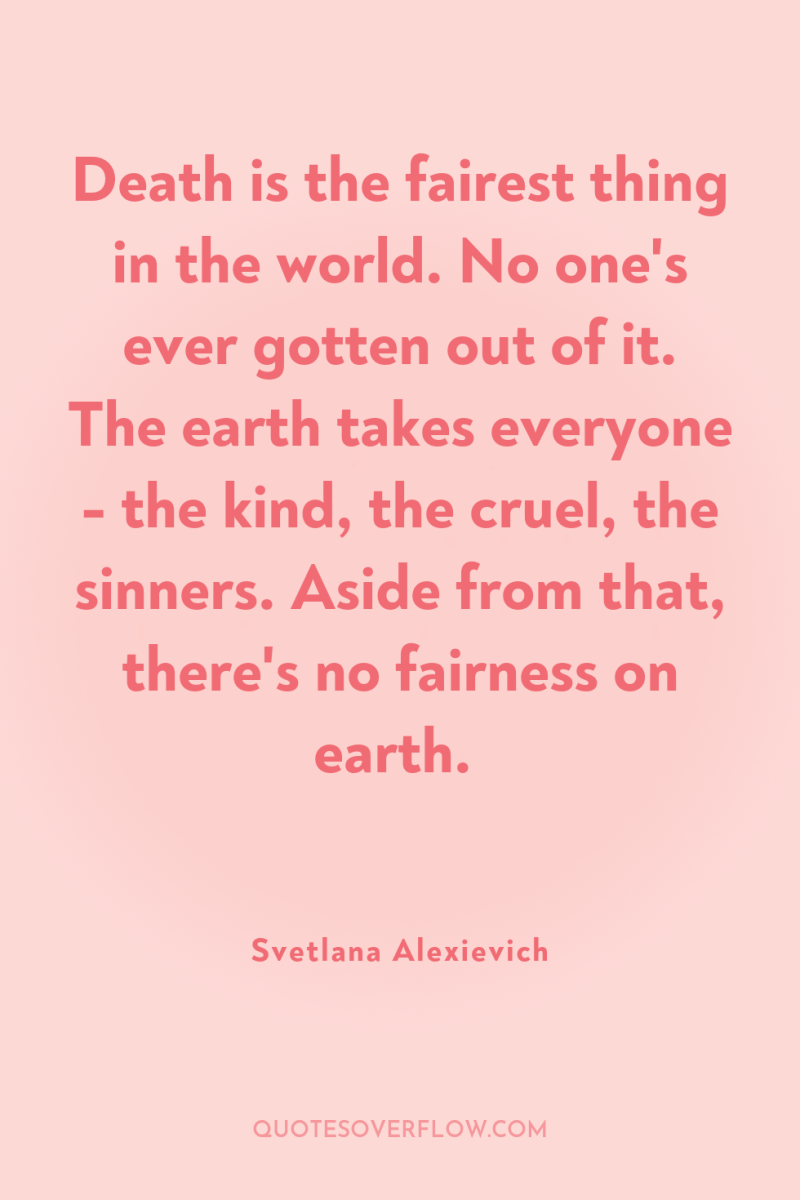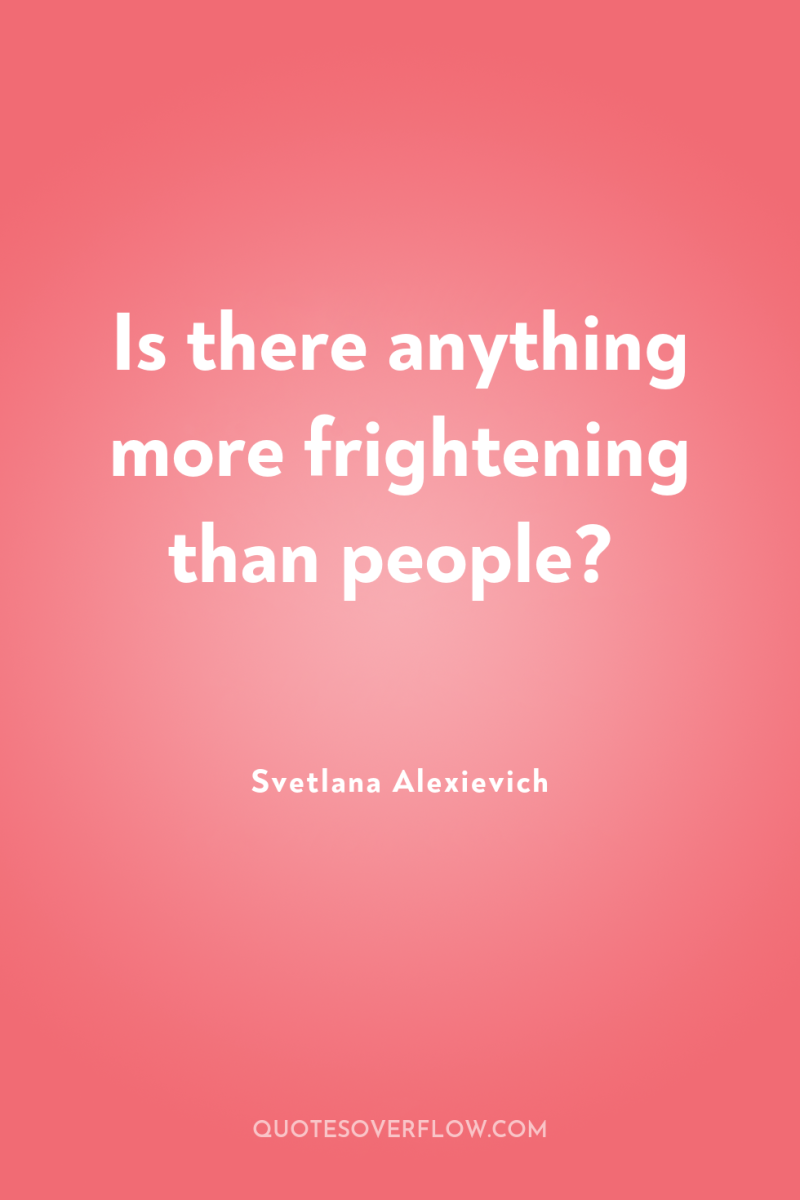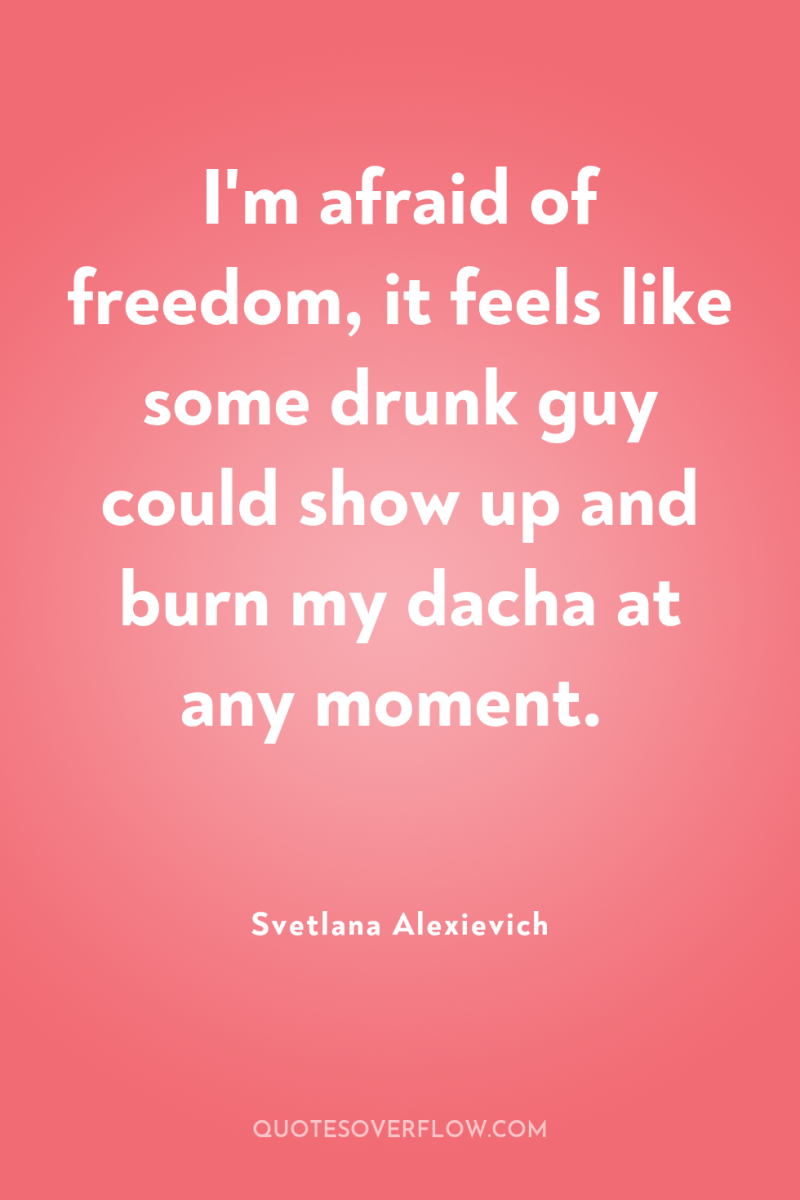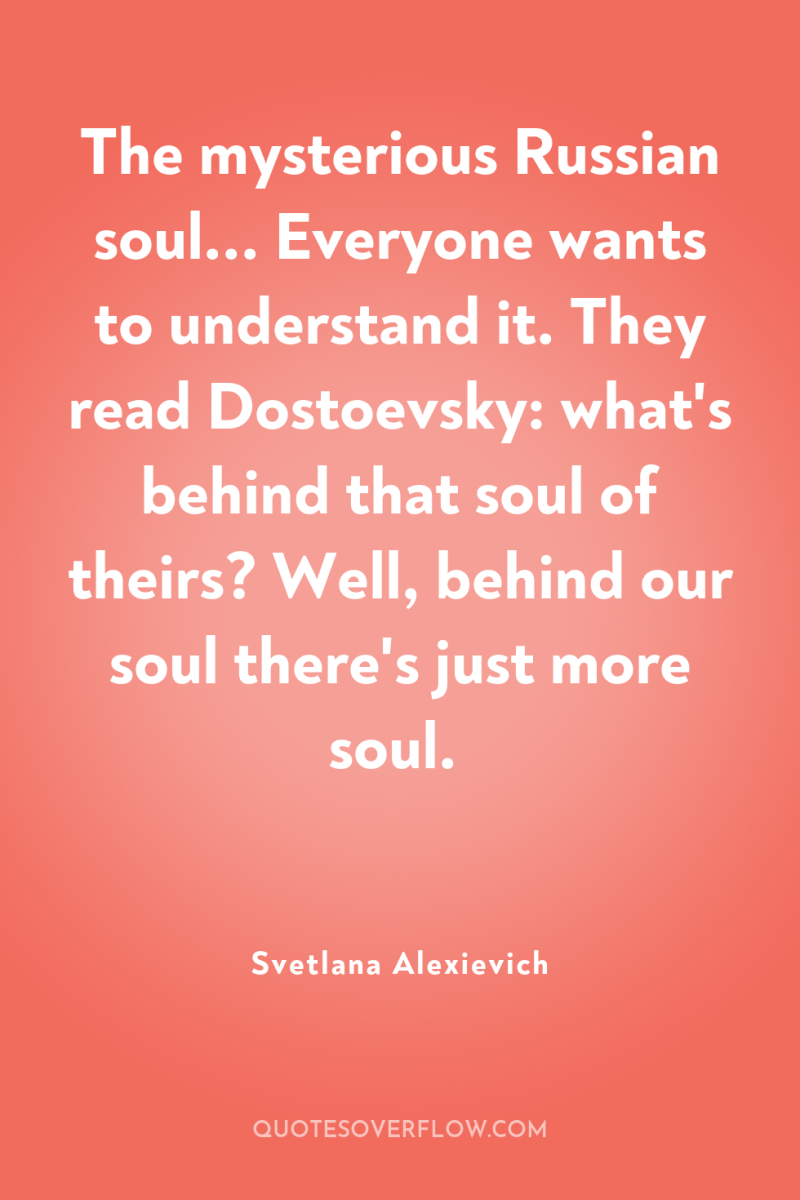
Death is the fairest thing in the world. No one's ever gotten out of it. The earth takes everyone - the kind, the cruel, the sinners. Aside from that, there's no fairness on earth.Svetlana Alexievich

Is there anything more frightening than people?Svetlana Alexievich
How were you taken prisoner?' The interrogator asked my father. 'The Finns pulled me out of a lake.' 'You traitor! You were saving your own skin instead of the Motherland.' My father also considered himself guilty. That's how they'd been trained.Svetlana Alexievich

I'm afraid of freedom, it feels like some drunk guy could show up and burn my dacha at any moment.Svetlana Alexievich

The mysterious Russian soul... Everyone wants to understand it. They read Dostoevsky: what's behind that soul of theirs? Well, behind our soul there's just more soul.Svetlana Alexievich
Pretty soon, I'll be decomposing into phosphorous, calcium, and so on. Who else will you find to tell you the truth? All that's left are the archives. Pieces of paper. And the truth is... I worked at an archive myself, I can tell you first hand: paper lies even more than people do.Svetlana Alexievich
When I see a garden in flower, then I believe in God for a second. But not the rest of the timeSvetlana Alexievich
Show me a fantasy novel about Chernobyl--there isn't one! Because reality is more fantastic.Svetlana Alexievich
Instead of lullabies, my mother would sing us songs of the Revolution. Now she sings them to her grandchildren. 'Are you nuts?' I ask her. She replies, 'I don't know any other songs.Svetlana Alexievich
At that time my notions of nuclear power were utterly idyllic. At school and at the university we'd been taught that this was a magical factory that made "energy out of nothing, " where people in white robes sat and pushed buttons. Chernobyl blew up when we weren't prepared.Svetlana Alexievich
Back then everyone was saying: "We're going to die, we're going to die. By the year 2000, there won't be any Belarussians left.Svetlana Alexievich
It's certainly true that Chernobyl, while an accident in the sense that no one intentionally set it off, was also the deliberate product of a culture of cronyism, laziness, and a deep-seated indifference toward the general population. The literature on the subject is pretty unanimous in its opinion that the Soviet system had taken a poorly designed reactor adn then staffed it with a group of incompetents. It then proceeded, as the interviews in this book attest, to lie about the disaster in the most criminal way. In the crucial first ten days, when the reactor core was burning and releasing a steady stream of highly radioactive material into the surrounding areas, the authorities repeatedly claimed that the situation was under control. . In the week after the accident, while refusing to admit to the world that anything really serious had gone wrong, the Soviets poured thousands of men into the breach. The machines they brought broke down because of the radiation. The humans wouldn't break down until weeks or months later, at which point they'd die horribly.Svetlana Alexievich
Why didn't we put Stalin on trial? I'll tell you why.. In order to condemn Stalin, you'd have to condemn your friends and relatives along with him. The people closest to you..our neighbor Yuri turned out to have been the one who informed on my father. For nothing, as my mother would say.. When Yeltsin came to power, I got a copy of his file, which included several informants' reports. It turned out that one of them had been written by Aunt Olga..his niece..a beautiful woman, full of joy.. It's not just Stalin and Beria, it's also our neighbor Yuri and beautiful Aunt Olga.. .Svetlana Alexievich
Many greeted the truth as an enemy. And freedom as well.Svetlana Alexievich
We were told that we had to win. Against whom? The atom? Physics? The universe? Victory is not an event for us, but a process.Svetlana Alexievich
I remembered some lines from the papers: our nuclear stations are absolutely safe, we could build one on Red Square, they're safer than samovars. They're like stars and we'll "light" the whole earth with them.Svetlana Alexievich